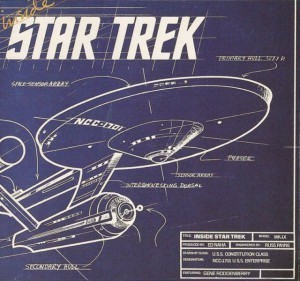The Man (or Alien) in the Mirror
I was reading this blog by author Theodora Goss and came across this comment:
“My parents’ generation was raised under communism, and still retains the assumption that literature is important to the extent that it adheres to literary realism.”
Ms. Goss, like me, is a fantasy author. Her works include the novel, The Thorn and the Blossom, and the story collection, In the Forest of Forgetting. Like me, she’s had to struggle with the issue of making the fantastic seem real, and on occasion the real seem fantastic. In broad strokes, that’s what a fantasy author does.
But her comment that her parents believed “literature is important to the extent that it adheres to literary realism” (emphasis mine) struck a note with me, because I believe the same is true of fantasy. And for the writer, that’s even harder.
 When I was a geeky teen living in west Tennessee, I discovered (thank you, Starlog magazine) the record album Inside Star Trek. This was a mostly spoken-word disc put out in 1976, during the fallow period between the end of the original series and the release of the first film. Gene Roddenberry spoke to Trek then-alums William Shatner and DeForest Kelly about their characters, and Mark Lenard appeared in character as Sarek to discuss the origins of Spock. Roddenberry also spoke to Isaac Asimov, one of the greats of SF. And something Asimov said, part of his advice to aspiring writers, has stuck with me ever since:
When I was a geeky teen living in west Tennessee, I discovered (thank you, Starlog magazine) the record album Inside Star Trek. This was a mostly spoken-word disc put out in 1976, during the fallow period between the end of the original series and the release of the first film. Gene Roddenberry spoke to Trek then-alums William Shatner and DeForest Kelly about their characters, and Mark Lenard appeared in character as Sarek to discuss the origins of Spock. Roddenberry also spoke to Isaac Asimov, one of the greats of SF. And something Asimov said, part of his advice to aspiring writers, has stuck with me ever since:“The writer must use all things human and all things human-made and all things that impinge upon the human being as his raw material.”
There was no mention of technology, or science, or fantasy creatures, or aliens. Just a three-fold reminder that whatever you write has to have a human connection.
The “literary realism” Ms. Goss’s family seeks is inseparable from the Asimovian “all things human.” Which means that SF/F/H writers cannot ignore it, if they want to be relevant, and more than mere escapism.
And then comes the real challenge: we have to make the reader buy into the “literary realism” of a squid from Venus, an elf from Middle Earth, or a vampire from Transylvania (or Memphis). We have to find the “all things human” within a troll, a werewolf, or a faery.
The great writers of “literary realism” hold up a mirror to life, which of course means they are showing us a reflection of ourselves that we immediately recognize, because it looks like us. The great writers of fantasy, science fiction and horror are also holding up a mirror, but one that shows us a version of ourselves that looks nothing like us. Yet if they do it well, if their mirror is true, we’ll see ourselves in it anyway.
Hemingway wrote The Old Man and the Sea. Tolkein wrote, in essence, The Old Man and the Hobbits, Dwarves, Elves and Trolls. Both are classics. And both show us ourselves.
Published on August 06, 2012 01:54
No comments have been added yet.



